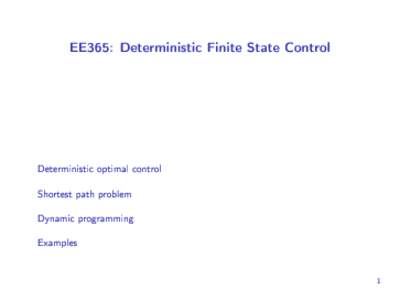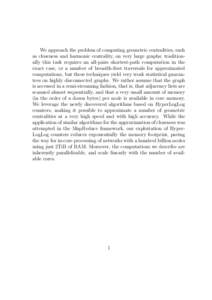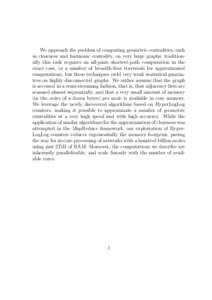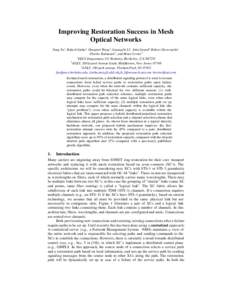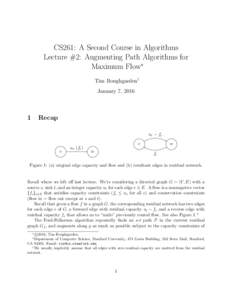<--- Back to Details
| First Page | Document Content | |
|---|---|---|
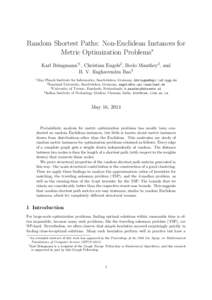 Date: 2016-01-03 06:48:33Graph theory Mathematics Computational complexity theory NP-hard problems NP-complete problems Edsger W. Dijkstra Combinatorial optimization Approximation algorithms Travelling salesman problem Shortest path problem Matching Randomized algorithm |
Add to Reading List |
 Random Shortest Paths: Non-Euclidean Instances for Metric Optimization Problems∗ Karl Bringmann†1 , Christian Engels2 , Bodo Manthey3 , and B. V. Raghavendra Rao4 1
Random Shortest Paths: Non-Euclidean Instances for Metric Optimization Problems∗ Karl Bringmann†1 , Christian Engels2 , Bodo Manthey3 , and B. V. Raghavendra Rao4 1